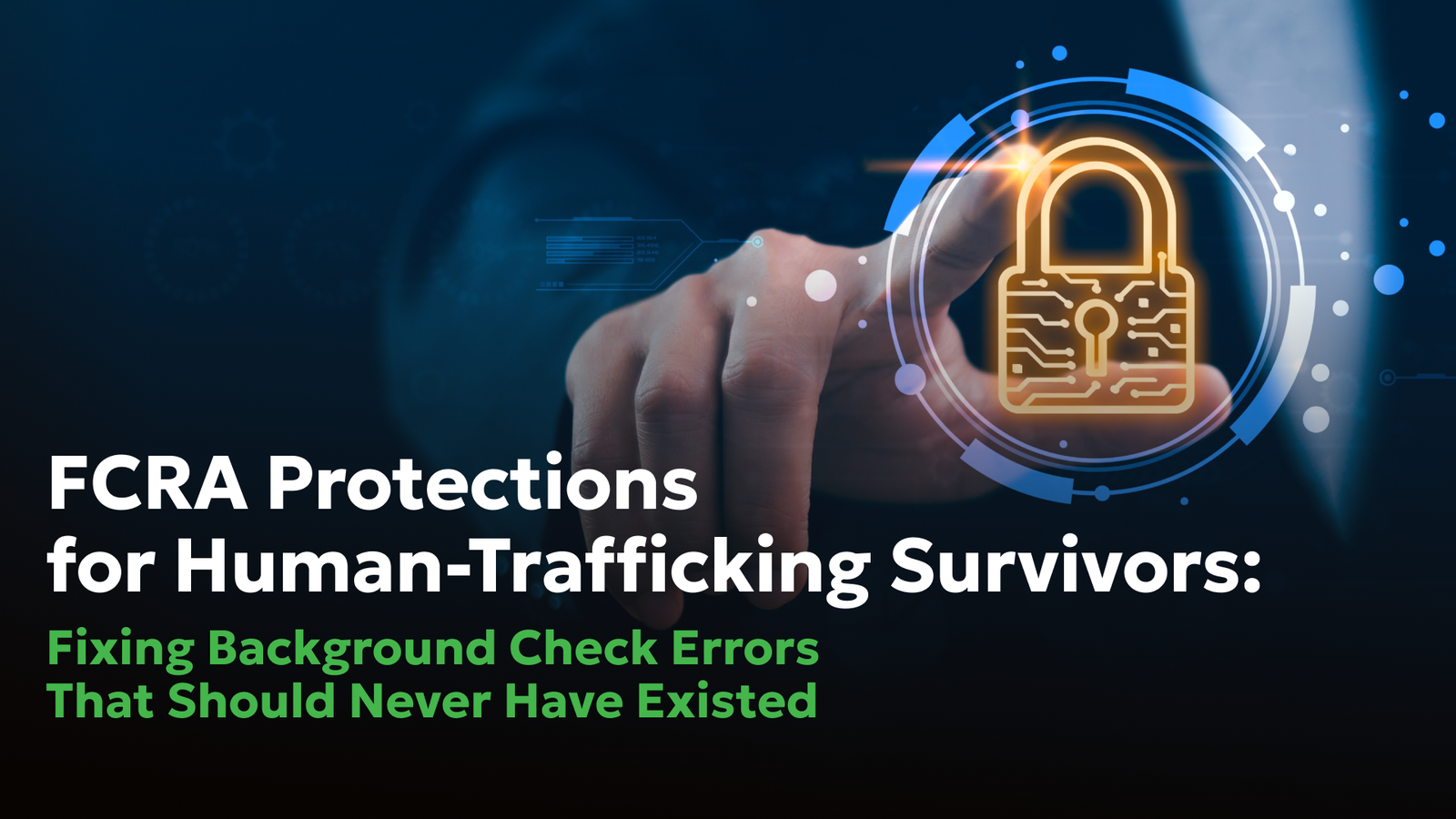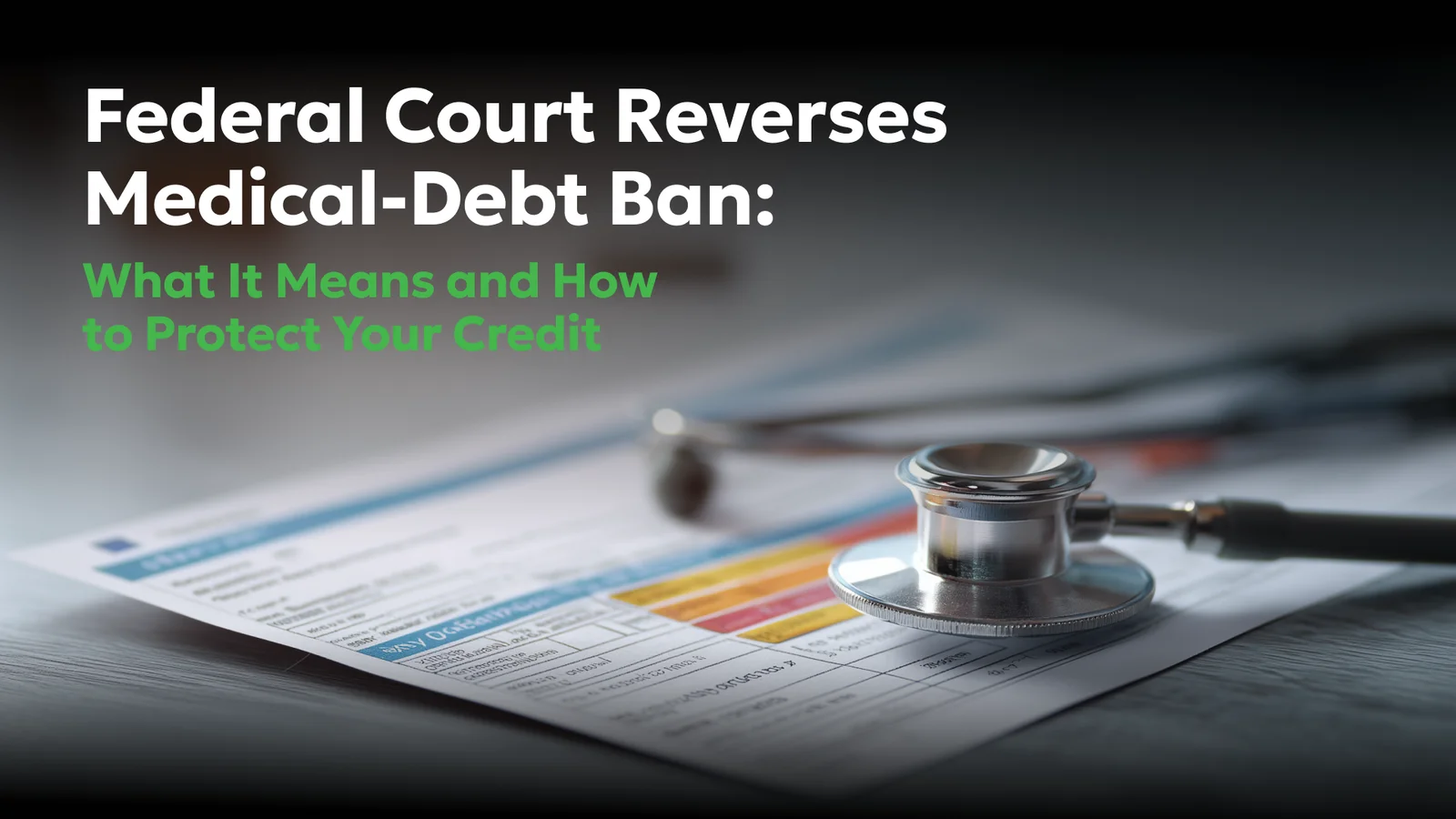How to Report Identity Theft to Police
- Blog
- Credit Reporting Inaccuracies
How to Report Identity Theft to Police

Identity Theft Struggles? Learn How to Recover, Reclaim Control, and Get Help When You Need It!
Confronting the aftermath of identity theft can be daunting. Learn why you should file a police report, what steps you can take right now toward recovery, and how Consumer Attorneys can help. Don't face identity theft alone!
You may question how serious identity theft is and whether you should file a police report for identity theft. That’s a valid question. Yes, you should report identity theft to the police and file a police report for identity theft as soon as you suspect it!
In 2021, nearly 23.9 million people were victims of identity theft during the prior twelve months. This menace shows no signs of abating. Identity theft commonly involves perpetrators exploiting your personal information for various advantages, which is one of the reasons you should quickly file a police report for identity theft if you believe you are a victim. The types of benefits these thieves obtain vary but typically include medical benefits, government perks, or personal gains through credit card fraud, enabling the thief or scammer to siphon funds directly from the victim's financial accounts. Furthermore, the thief might escalate their actions by opening additional unauthorized lines of credit in the victim's name.
If you feel you are facing identity theft, you may question, “Do police investigate identity theft?” And the short answer is Yes! Taking strategic measures is critical, and filling out the proper paperwork and filing a police report are among them. Despite its seemingly drastic nature, reporting it is a necessary step.
If you suspect identity theft, you should file a police report as soon as possible since timely reporting is key in regaining control and eliminating far-reaching consequences of this crime. We will describe the benefits of filing a police report for identity theft, and discuss how you can get additional assistance from Consumer Attorneys.
Informing the police about possible identity theft is not merely compliance; it is a strategic move that can affect your case significantly. The length of time it takes to recover when your identity has been stolen can be cut significantly by acting quickly.
When to Report Identity Theft to the Police
Timing is paramount when reporting identity theft to the police. As soon as you believe or confirm that you are a victim, prompt reporting is essential. The legal system can be a powerful ally, and filing a police report for identity theft early sets the wheels in motion for potential investigations and legal actions.
Steps for Identity Theft Victims
What happens when you file a police report for theft? And how do you go about filing a police report for identity theft? Great questions. We have answers! See our guide below:
Step 1: Contact Your Banking Institutions
If you suspect identity theft, you should contact your bank, credit card, or account holder right away. Doing so will help end unauthorized access to your account(s) immediately.
Step 2: Review All of Your Accounts
After you contact your baking institutions, you need to then review all of your accounts (credit cards, bank accounts, benefits, retirement, etc.) and credit reports for suspicious activity.
Step 3: Formally File a Dispute
After thoroughly examining all of your accounts, you should then file a dispute. To formally file a dispute of any unauthorized charges on credit accounts (cards, lines of credit, etc.) and unauthorized withdrawals or transactions from funded accounts (banks, peer-to-peer payment apps such as Zelle, Venmo, etc.). You should be aware that there are strict statutory timelines for disputing charges and a host of laws that can help protect you, but you've got to act quickly! Working with a consumer protection attorney is the best option. Additionally, filing a police report can serve as supporting documentation in your dispute.
Step 4: Contact Your Local Police Department
It’s important to make a police report for identity theft. Initiate the reporting process by reaching out to your local police department. Provide them with a detailed account of the identity theft, including any information or documentation you may have. A police report records the crime, laying the groundwork for further action.
Step 5: File a Complaint with the Federal Trade Commission (FTC)
Visit the FTC's website or call their Identity Theft Hotline to learn how to file a complaint. The FTC acts as a central repository for identity theft complaints and shares this information with law enforcement agencies, aiding in their investigations. Please note that reaching out to the FTC online and via phone should be acceptable, but filing a police report for identity theft online is not always advised. If you can travel to a police station with your information in hand and sign forms in person, that is typically the best method for filing the complaint.
Step 6: Obtain a Copy of the Police Report
After you file the report, you should request a copy for your records. The police report is an official document that may be required when disputing fraudulent transactions and working to restore your identity.
Step 7: Put a Fraud Alert on Credit Reports
Contact the credit bureaus including (TransUnion, Experian, and Equifax) to put an alert for fraud on your credit reports. This fraud alert will notify and require creditors to verify your identity before extending credit, adding an extra layer of protection.
Step 8: Monitor Your Accounts Regularly
Stay vigilant by consistently monitoring your accounts and credit files. Report any suspicious activities promptly to your bank and creditors, ensuring swift action to investigate the identity theft and mitigate potential damages.
Step 9: Update Your Passwords and Security Measures
Boost your digital security by changing passwords for online platforms. You should also opt for multi-factor authentication when possible to enhance protection from unauthorized access.
Step 10: Consider a Credit Freeze
You can freeze your accounts to avoid any further identity theft. The purpose of a freeze is to lock your credit files so it will be hard for the identity thieves to open any new accounts on your name.
Step 11: Contact Consumer Attorneys
You should get in touch with Consumer Attorneys and there is no need to wait! Contact us soon to reduce the damage identity thieves may have caused to your credit. Fill out the online intake form, email us at info@consumerattorneys.com, call 1-877-615-1725, or speak with us LIVE through our chat feature on our website!
How Identity Theft Affects Your Credit
Your credit rating can be ruined by identity theft which will have a detrimental effect on your ability to get additional loans and lines of credit. Fraudulent activities result in a lower credit score due to unauthorized transactions. These long-term effects can be minimized by acting quickly by reporting the incident to the police soon after realizing that your identity has been stolen. This proactive step offers several benefits for your overall case:
- Kickstart the Investigation Process. Will police investigate identity theft? Yes. A police report helps in the investigation. A police report initiates the investigation process, increasing the likelihood of identifying and apprehending the identity thief. It sets the groundwork for potential legal actions.
- Serves as Initial Proof of Innocence. Your police report is an initial piece of evidence showcasing your innocence in the face of fraudulent activities. This can be crucial when disputing incorrect information in your credit report.
- Documentation of the Crime. A filed police report serves as official documentation of the crime. This documentation can be presented to creditors, debt collectors, or credit bureaus as evidence of the identity thief's responsibility for the fraudulent activities.
- Essential for Fraud Affidavit Completion. When completing your fraud affidavit, a police report is a necessary component. It strengthens your case and provides additional documentation for the resolution process.
These benefits highlight the importance of not delaying the reporting of unauthorized activities taking place in your name. It positions you strategically in the pursuit of justice and recovery.
Staying Watchful After Identity Theft
After taking steps to address identity theft, you must remain vigilant. Continue monitoring your financial accounts and credit reports, and be wary of phishing attempts or suspicious communications. Regularly update your passwords and take advantage of available security features to fortify your digital defenses.
Call Us for Consultation!
If the complexities of identity theft and its aftermath become overwhelming, consumer protection attorneys are here to provide consultation and support. Our experienced legal team can offer insights into navigating the legal aspects of identity theft, ensuring you take the proper steps towards recovery.
You can fill out the online intake form, email us at info@consumerattorneys.com, call us at 1-877-615-1725, or chat with us via our LIVE chat feature on our website. Consumer Attorneys are dedicated to helping you reclaim control over your identity and life!
Frequently Asked Questions
Yes, many identity theft cases are handled by local police. In the event that you are a victim of identity theft, it is recommended to report the incident by filing a claim at your local police department. Filing a police report is the first step towards creating an official record of the crime which helps in the investigation. Although the local police may not solve all parts of the case, their involvement is important in recording what happened and giving you the documentation needed to challenge fraudulent activities and restore your identity.
What happens when your identity theft claim is investigated? In an identity theft investigation law enforcement looks at the evidence and conducts inquiries to determine who committed the crime. The procedure includes gathering information from victims, financial institutions and other sources. Investigators study transaction records, surveillance video and digital footprints to follow fraudulent activity. Coordination with credit bureaus and government agencies is important to monitor the wrongful use of your personal information. Investigations that produce some evidence of a crime may result in arrests and prosecutions. Victims are encouraged to keep communicating with the investigators, track their finances, and cooperate with their banking institutions for favorable results.
Yes, you can check the status of a police investigation into your identity theft case. Begin by contacting the law enforcement agency handling your case. Provide them with your case number and inquire about the progress. Be prepared to present more information if it is requested. While some jurisdictions may limit the details disclosed, staying in contact with the investigating officer ensures you stay informed. Additionally, inquire about any available victim support services. Maintaining open communication with law enforcement enhances collaboration and helps you navigate the complexities of the investigation, contributing to a more satisfactory resolution.
If the police close your identity theft case without resolution, explore alternative avenues for assistance. Contact the detective assigned to your case for insights into the decision. Consider reaching out to higher-ranking officers or specialized units within the police department. Simultaneously, file a complaint with the Federal Trade Commission (FTC) and notify your local consumer protection agency. Also, consult with an FCRA lawyer who is experienced in identity theft cases to explore your legal options. The closure by the police doesn't preclude other remedies, and proactive measures can help reignite investigations or provide guidance on pursuing civil actions to rectify the situation.
While the police play a significant role in investigating identity theft, their ability to recover stolen funds or reverse fraudulent transactions is limited. Once funds are stolen, retrieval becomes challenging. However, swift reporting to law enforcement enhances the chances of identifying and apprehending the perpetrator. Depending on the nature and extent of the identity theft, there are multiple federal laws that help protect you, but you must act quickly to report and dispute unauthorized activity. While police involvement is vital, collaboration with financial entities and credit agencies is integral to mitigating losses and restoring financial standing. If you believe your identity is stolen or at risk of identity theft, you have options, but calling the lawyers at Consumer Attorneys for assistance is the best one.


Daniel Cohen is the Founder of Consumer Attorneys. Daniel manages the firm’s branding, marketing, client intake and business development efforts. Since 2017, he is a member of the National Association of Consumer Advocates and the National Consumer Law Center. Mr. Cohen is a nationally-recognized practitioner of consumer protection law. He has a we... Read more
Related Articles




R
ONGS™You pay nothing. The law makes them pay.







